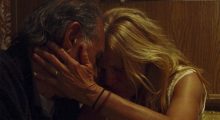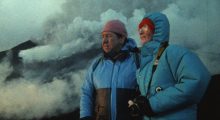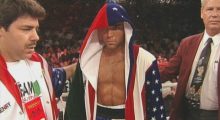Sundance Responses
-
The 2022 Sundance Question: What Aspect of Your Filmmaking Did You Have to Reinvent?

Each year Filmmaker asks all the incoming feature directors at Sundance one question. (To see past years’ questions and responses, click here.) This year’s question: The last two years have prompted much contemplation and reconsideration of the reasons why we make our films as well as the ways in which we make them. What aspect of your filmmaking—whether in your creative process, the way you finance your films, your production methodology or the way you relate to your audience—did you have to reinvent in order to make and complete the film you are bringing to the festival this year? “Jumping […]
-
“Acting as Though Something Will Happen Can Take One Darn Close to Doing It” | Max Walker-Silverman, A Love Song

The last two years have prompted much contemplation and reconsideration of the reasons why we make our films as well as the ways in which we make them. What aspect of your filmmaking—whether in your creative process, the way you finance your films, your production methodology or the way you relate to your audience—did you have to reinvent in order to make and complete the film you are bringing to the festival this year? This script had been in my head for a long time, but I didn’t put pen to paper until April of 2020. I’d just graduated from […]
-
“Jumping and Hugging When a Scene Suddenly Works Amazingly Is Always Much More Fun in the Same Room” | Alon Schwarz, Tantura

The last two years have prompted much contemplation and reconsideration of the reasons why we make our films as well as the ways in which we make them. What aspect of your filmmaking—whether in your creative process, the way you finance your films, your production methodology or the way you relate to your audience—did you have to reinvent in order to make and complete the film you are bringing to the festival this year? I think the biggest challenge was the communications cycle with the offline video editors when not working locally. I started working remotely as my first editor, […]
-
“The Pandemic Sparked a Deeper Contemplation Into Our Creative Process” | Sara Dosa, Fire of Love

The last two years have prompted much contemplation and reconsideration of the reasons why we make our films as well as the ways in which we make them. What aspect of your filmmaking—whether in your creative process, the way you finance your films, your production methodology or the way you relate to your audience—did you have to reinvent in order to make and complete the film you are bringing to the festival this year? Fire of Love is the first archival film I’ve ever directed—my previous two independent films I directed were primarily vérité. Fire of Love producer Shane Boris, assistant producer […]
-
“It Was Really Important That I Was Able to Lean Into the Intimacy of Interviewing My Subjects and Not Just Rely on Archival Footage” | Eva Longoria Bastón, La Guerra Civil

The last two years have prompted much contemplation and reconsideration of the reasons why we make our films as well as the ways in which we make them. What aspect of your filmmaking—whether in your creative process, the way you finance your films, your production methodology or the way you relate to your audience—did you have to reinvent in order to make and complete the film you are bringing to the festival this year? Given the nature of La Guerra Civil, it was really important that I was able to lean into the intimacy of interviewing my subjects and not […]
-
“A Very Sculptural Process”: Editors Natalia Almada and Dave Cerf on Users

Natalia Almada’s Users is an inquisition on technology and its inextricable nature from modern life. Juxtaposed against Californian wildfires and oceans on the rise, the film questions what progress means when we sacrifice so much in the process. Almada, alongside her co-editor Dave Cerf, describes the unique collaborative process used in editing the film. Filmmaker: How and why did you wind up being the editor of your film? What were the factors and attributes that led to your being hired for this job? Almada: Well… I’ve edited all my films. In part I think it is because I need the editing […]
-
“Wildfires Are a Complicated Tornado of Danger”: DP Bennett Cerf on Users


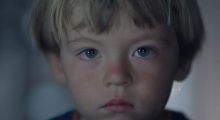
Natalia Almada’s Users is an inquisition on technology and its inextricable nature from modern life. Juxtaposed against Californian wildfires and oceans on the rise, the film questions what progress means when we sacrifice so much in the process. DP Bennett Cerf discusses the morbid thrill of capturing disasters on film. Filmmaker: How and why did you wind up being the cinematographer of your film? What were the factors and attributes that led to your being hired for this job? Cerf: Natalia has always shot her own projects except for her narrative feature, which Lorenzo Hagerman shot. I was peripherally involved in […]
-
“The Whole Story Through the Protagonist’s Eyes”: Enis Saraçi on Hive

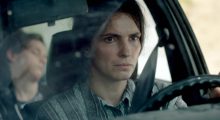
Blerta Basholli’s Hive explores macro gender dynamics in her home country of Kosovo. Among a league of women awaiting news of their husbands, fathers and sons’ fates in the Kosovo War, Fahrije practices self-reliance and encourages other women to seek independence despite the violent patriarchal expectations of their community. Editor Enis Saraçi tells us why the film is shot primarily through Fahrije’s perspective. Filmmaker: How and why did you wind up being the editor of your film? What were the factors and attributes that led to your being hired for this job? Saraçi: Yll and Valon, producers of Hive, were both […]
-
“The Film Is Quite Literally Magic and Realism”: Editor Cyndi Trissel on Marvelous and the Black Hole

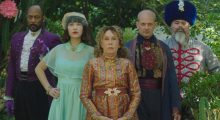
Kate Tsang’s debut film Marvelous and the Black Hole follows thirteen-year-old Sammy Ko (Miya Cech), who struggles with delinquency shortly after the death of her mother. After meeting Margot (Rhea Perlman), a magician dead set on taking Sammy as her assistant, Sammy reluctantly begins a friendship with her and learns to heal through the expressive art of sleight of hand. Editor Cyndi Trissel tells us how they captured actual magic in the film’s final cut. Filmmaker: How and why did you wind up being the editor of your film? What were the factors and attributes that led to your being hired […]
-
“It’s a Conflict of Ideas”: DP Michał Łuka on Prime Time

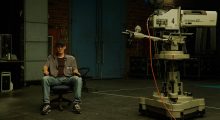
Jakub Piątek’s feature debut Prime Time is a thriller set in the deadly world of broadcast television. In 1999, a youth named Sebastian (Bartosz Bielenia) hijacks a TV studio, taking two hostages along the way. His reasons for doing this slowly unravel, including to himself. DP Michał Łuka tells us how they captured the youthful rebelliousness of the ’90s in shooting. Filmmaker: How and why did you wind up being the cinematographer of your film? What were the factors and attributes that led to your being hired for this job? Łuka: I think every time it’s a whole spectrum of both […]

